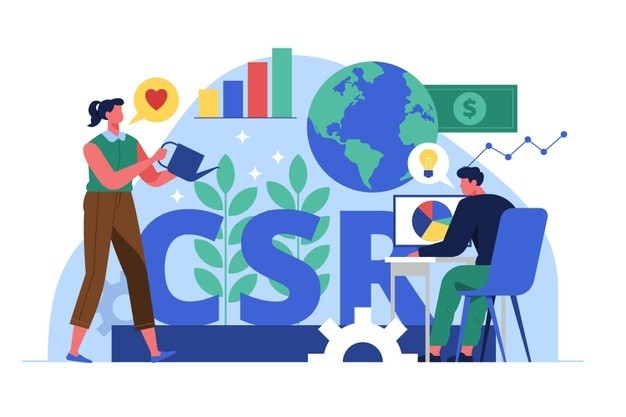In today’s rapidly evolving marketplace, consumers are no longer satisfied with brands that merely offer quality products or services. They seek deeper connections and shared values. As a result, brands are increasingly taking on the mantle of social responsibility, using their platforms to drive positive change in society. Email marketing has emerged as a particularly effective tool for this purpose, allowing brands to communicate their commitment to social causes directly to their audience.
By integrating social responsibility into their email campaigns, brands can create meaningful connections with consumers who are passionate about making a difference. This approach not only helps in raising awareness for important issues but also in building a loyal customer base that feels aligned with the brand’s values. The shift towards socially conscious marketing reflects a broader cultural trend where consumers expect companies to contribute to the betterment of society, rather than focusing solely on profit.
The Rise of Socially Conscious Marketing
Socially conscious marketing is more than just a trend. It’s a reflection of a broader cultural shift. A 2022 study by Accenture revealed that 62% of consumers want companies to take a stand on current issues like sustainability, transparency, and fair employment practices. This growing expectation has pushed brands to not only sell products but also contribute to social good.
Email marketing offers a unique opportunity for brands to champion causes that matter to their audience. This approach raises awareness, drives engagement, and fosters deeper connections with customers.
Why Social Responsibility Resonates with Prospects
The focus on social responsibility resonates with prospects for several reasons:
Shared Values Build Trust
Consumers are looking for brands they can trust. When a brand takes a stand on social issues, it signals to prospects that the company is guided by values, fostering trust. A Harvard Business Review study found that 64% of consumers with strong brand relationships do so because of shared values.
A Desire to Make a Difference
Many consumers, particularly millennials and Gen Z, are driven by a desire to impact the world positively. By supporting brands that advocate for social causes, prospects feel their purchases contribute to something bigger than themselves. A report by Cone Communications found that 87% of consumers will purchase a product because a company advocates for an issue they care about.
Emotional Connection
Socially responsible marketing appeals to consumers’ emotions. When a brand takes a stand on issues like environmental conservation or social justice, it creates an emotional bond with prospects who care about those causes. This emotional connection can turn a prospect into a loyal customer, as they feel more personally invested in the brand’s mission. Forbes reports that emotionally connected customers have a 306% higher lifetime value.
Differentiation in a Crowded Market
Brands that take a stand on social issues can differentiate themselves in a crowded marketplace. Prospects are more likely to remember and choose brands that stand out for their commitment to making a positive impact, leading to increased brand loyalty.
Why Email Marketing is the Chosen Medium
When it comes to digital marketing, brands have an array of tools at their disposal—social media, content marketing, influencer partnerships, and more. However, email marketing stands out as a particularly powerful tool for driving social change, and here’s why:

Direct and Personalized Communication:
Email marketing allows brands to speak directly to their audience. Unlike social media, where messages can get lost in the noise, emails land straight in the inbox, offering a personal touch. This direct communication makes it easier to share important causes and tailor messages to specific segments of the audience, ensuring that the right people receive the right message.
Higher Engagement Rates:
Emails typically have higher engagement rates compared to other digital marketing channels. According to Campaign Monitor, email open rates average around 18%, with click-through rates of 2.6%. This is significantly higher than the average engagement rates on social media platforms like Facebook or Twitter. For socially conscious campaigns, this means more people are likely to read and act on the message.
Controlled Narrative:
Email marketing gives brands full control over their message. On social media, posts are often subject to algorithms and can be misinterpreted or taken out of context. Emails, on the other hand, allow brands to present their narrative in a controlled environment, ensuring that the message is clear and impactful.
Measurable Impact:
One of the key advantages of email marketing is its measurability. Brands can track open rates, click-through rates, and conversion rates, allowing them to assess the impact of their socially conscious campaigns in real-time. This data-driven approach enables brands to refine their strategies and ensure they are making the most significant impact possible.
Building Long-term Relationships:
Email marketing is particularly effective for nurturing long-term relationships with customers. Socially conscious campaigns can be part of an ongoing conversation, with brands updating subscribers on the progress of their initiatives, inviting them to participate in new campaigns, or sharing stories of the impact made. This continuous engagement helps build a loyal community around the brand’s mission.
How Brands Are Using Email Campaigns to Drive Social Change
Patagonia: Advocating for Environmental Conservation
Patagonia, the outdoor clothing brand, is known for its commitment to environmental conservation. The company has used its email marketing campaigns to rally customers around environmental causes. For example, in 2021, Patagonia sent an email titled “Protect the Arctic Refuge” to subscribers, urging them to support efforts to preserve this environment. The email included a link to a petition and information on how customers could get involved.
Patagonia’s consistent messaging on environmental issues has reinforced its brand identity and solidified its relationship with customers who share similar values.
Ben & Jerry’s: Promoting Social Justice
Ben & Jerry’s, the ice cream brand known for its activism, has long used its platform to advocate for social justice. During the Black Lives Matter movement, the company sent emails expressing solidarity and educating subscribers on racial justice issues. These emails included calls to action, such as signing petitions and supporting specific organizations.
Ben & Jerry’s socially conscious marketing efforts have had a profound impact, boosting brand loyalty and customer engagement. According to Morning Consult, Ben & Jerry’s was ranked as one of the most socially responsible brands in 2020.
TOMS: Supporting Health and Education Initiatives
TOMS, a footwear brand with a history of giving back, has used its email marketing campaigns to highlight its social initiatives. The brand’s “One for One” campaign, which promises to donate a pair of shoes to a child in need for every pair purchased, has been prominently featured in their email newsletters. TOMS also sends emails focusing on specific health and education initiatives, often including personal stories from beneficiaries.
By promoting their social impact initiatives through email, TOMS has created a strong emotional connection with its customers, leading to a loyal customer base.
The Impact on Brand Loyalty and Customer Engagement
Socially conscious email marketing campaigns do more than raise awareness. They drive significant customer engagement and foster brand loyalty. Consumers today are not just looking for products – they are looking for brands that align with their values. By championing social causes, brands can differentiate themselves and build deeper, more meaningful relationships with their customers.
A study by Edelman found that 64% of consumers globally would buy from or boycott a brand solely because of its position on a social or political issue. This statistic highlights the power of cause-driven marketing in influencing purchasing decisions and shaping brand perception.
Moreover, socially conscious marketing can lead to higher open and click-through rates for email campaigns. When customers feel that a brand shares their values, they are more likely to engage with the content. For example, Ben & Jerry’s reported a 20% increase in email open rates during their social justice campaigns, demonstrating the effectiveness of aligning marketing efforts with social causes.
Purpose-Driven Email: Using the Right Platform
Email marketing for a cause is not just about promoting a product—it’s about promoting a purpose. Brands that successfully leverage their email campaigns to drive social change are not only doing good but also building stronger connections with their customers. In a world where consumers are increasingly looking for brands that stand for something, socially conscious email marketing is a powerful tool for driving engagement, loyalty, and meaningful impact.
However, to fully realize the potential of these campaigns, it’s crucial to partner with the right email marketing platform. The right platform can provide the tools and analytics needed to craft personalized, impactful messages, deliver and measure the success of your efforts.
As more brands embrace this approach, the potential for creating positive social change through email marketing is limitless. By aligning their values with those of their customers and leveraging the power of the right platform, brands can lead the way in promoting a more just and sustainable world.




